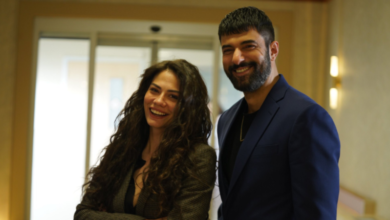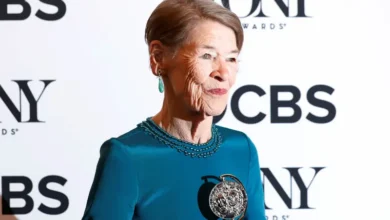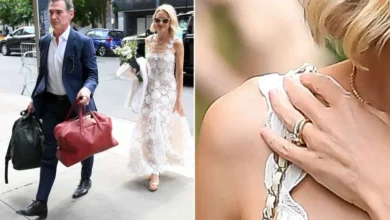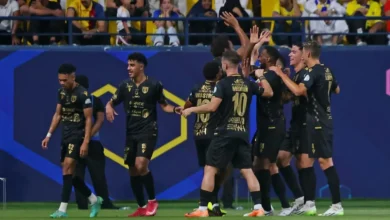Blake Lively must give Taylor Swift texts to Justin Baldoni judge says — here’s what it says
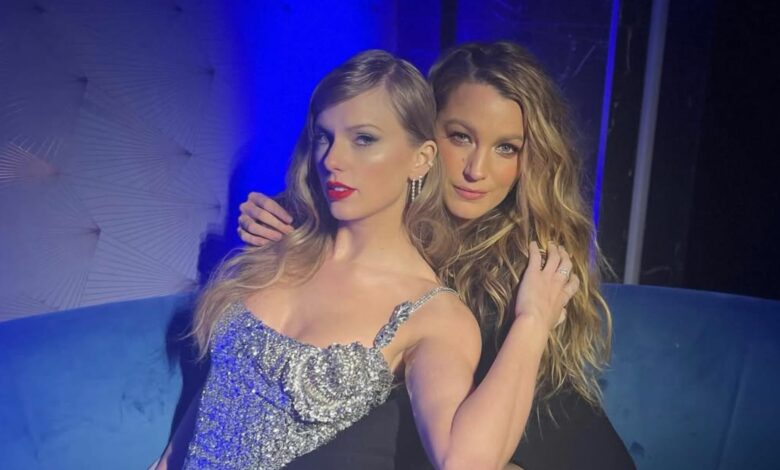
Blake Lively ordered to hand over Taylor Swift texts in lawsuit.
In the lawsuit involving the film It Ends With Us, Blake Lively and Taylor Swift’s text messages will have to be turned over. The judge has decided that the friends’ discussions regarding the set’s working conditions are pertinent to Lively’s allegations of sexual harassment and retaliation against director and co-star Justin Baldoni.
Swift’s text conversations have been at the focus of Lively’s It Ends With Us lawsuit for the past month, but on Wednesday, June 18, Baldoni and his production company, Wayfarer Studios, won the case. After initially attempting to obtain the texts directly from Swift, Baldoni abandoned his subpoena on the pop sensation and chose to look for the communications from Lively as part of the standard discovery procedure.

“The court’s protective order ruling rests on the Wayfarer Parties’ admission that they received nothing from Taylor Swift, which is exactly the opposite of what their ‘insider’ claimed two weeks ago,” the representative for Lively, 37, said.
“Baldoni’s desire to drag Taylor Swift into this has been constant dating back to August 2024, when the crisis PR firm led by Melissa Nathan included her in their ‘Scenario Planning’ document (Lively Amended Complaint, Exhibit D), referred to her as a bully, and called for a strategy to influence the ‘TS fanbase,'” the attorney continued.
According to the statement, “We will continue to call out Baldoni’s relentless efforts to exploit Ms. Swift’s popularity, which from day one has been nothing more than a distraction from the serious sexual harassment and retaliation accusations he and the Wayfarer parties are facing.”
“Blake Lively’s motion is premised on the greater worry that the Wayfarer Parties are utilizing demands for interactions with Swift not ‘to seek information relevant to claims and defenses in court but to prop up a public relations narrative outside of court,'” Liman writes in his letter dated June 18.
“That order was designed precisely to ensure that parties may share sensitive information that may be ‘only tangentially related to the underlying cause of action’ without fear that it will be leaked to the press,” the court stated.

Additionally, Judge Liman rejected Wayfarer and Baldoni’s cross-motion to compel Lively to produce production-related materials.
The judge explained why Baldoni’s legal defense sought the private messages from Swift: “Given that Lively has represented that Swift had knowledge of complaints or discussions about the working environment on the film, among other issues, the requests for messages with Swift regarding the film and this action are reasonably tailored to discover information that would prove or disprove Lively’s harassment and retaliation claims.”
According to Blake Lively’s protective order application, Baldoni’s team “pursued [these communications] at the same time they have refused to produce to Ms. Lively the documents they publicly claimed to have received as part of a deal to withdraw their subpoenas to Ms. Swift and her counsel.” Judge Liman was the recipient of the letter.
The $400 million countersuit Baldoni had previously brought against Lively, her husband Ryan Reynolds, their publicist Leslie Sloane, and The New York Times was dropped by Judge Liman soon before the ruling. Baldoni, Melissa Nathan, and the Agency Group were accused of planning a smear campaign against Lively in a New York Times report. After that, Baldoni sued for slander.
Swift contributed her song “My Tears Ricochet” to the It Ends With Us soundtrack prior to the lawsuit, but she was not involved in the film’s creation.



